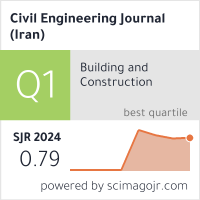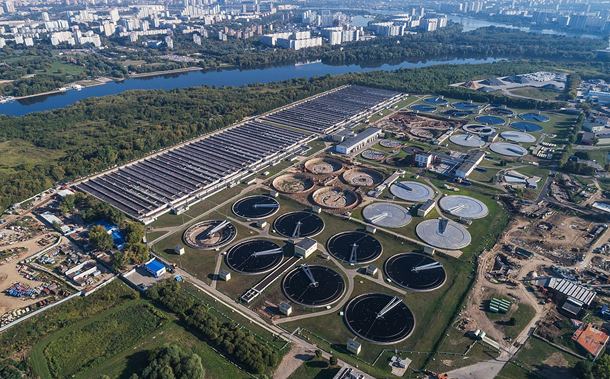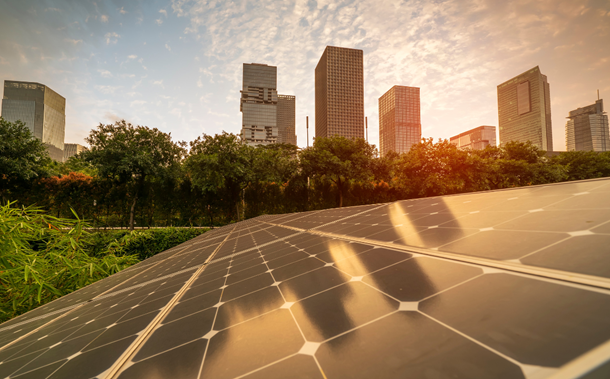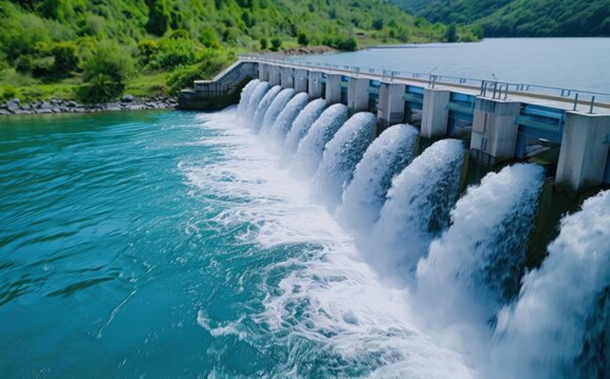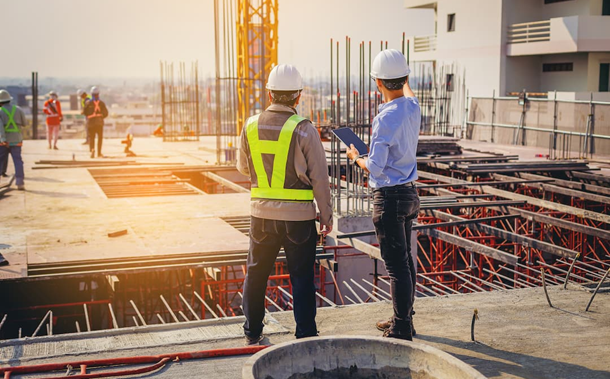Artificial Recharge of an Unconfined Aquifer Using Treated Wastewater as a Climate Change Mitigation Strategy
Downloads
Doi:10.28991/CEJ-SP2024-010-016
Full Text:PDF
Downloads
[2] Hassan, W. H., & Khalaf, R. M. (2020). Optimum Groundwater use Management Models by Genetic Algorithms in Karbala Desert, Iraq. IOP Conference Series: Materials Science and Engineering, 928(2), 22141. doi:10.1088/1757-899X/928/2/022141.
[3] Mohammed, Z. M., & Hassan, W. H. (2022). Climate change and the projection of future temperature and precipitation in southern Iraq using a LARS-WG model. Modeling Earth Systems and Environment, 8(3), 4205–4218. doi:10.1007/s40808-022-01358-x.
[4] Klí¸ve, B., Ala-Aho, P., Bertrand, G., Gurdak, J. J., Kupfersberger, H., Kví¦rner, J., Muotka, T., Mykrä, H., Preda, E., Rossi, P., Uvo, C. B., Velasco, E., & Pulido-Velazquez, M. (2014). Climate change impacts on groundwater and dependent ecosystems. Journal of Hydrology, 518(PB), 250–266. doi:10.1016/j.jhydrol.2013.06.037.
[5] Asadi, R., Zamaniannejatzadeh, M., & Eilbeigy, M. (2023). Assessing the Impact of Human Activities and Climate Change Effects on Groundwater Quantity and Quality: A Case Study of the Western Varamin Plain, Iran. Water (Switzerland), 15(18), 3196. doi:10.3390/w15183196.
[6] Hassan, W., Faisal, A., Abed, E., Al-Ansari, N., & Saleh, B. (2021). New composite sorbent for removal of sulfate ions from simulated and real groundwater in the batch and continuous tests. Molecules, 26(14), 4356. doi:10.3390/molecules26144356.
[7] Mohsen, K. A., Nile, B. K., & Hassan, W. H. (2020). Experimental work on improving the efficiency of storm networks using a new galley design filter bucket. IOP Conference Series: Materials Science and Engineering, 671(1), 12094. doi:10.1088/1757-899X/671/1/012094.
[8] Aladejana, J. A., Kalin, R. M., Sentenac, P., & Hassan, I. (2020). Assessing the impact of climate change on groundwater quality of the shallow coastal aquifer of eastern dahomey basin, Southwestern Nigeria. Water (Switzerland), 12(1), 224. doi:10.3390/w12010224.
[9] Treidel, H., Martin-Bordes, J. L., & Gurdak, J. J. (2011). Climate Change Effects on Groundwater Resources. CRC Press, London, United Kingdom. doi:10.1201/b11611.
[10] Sajjad, M. M., Wang, J., Abbas, H., Ullah, I., Khan, R., & Ali, F. (2022). Impact of Climate and Land-Use Change on Groundwater Resources, Study of Faisalabad District, Pakistan. Atmosphere, 13(7), 1097. doi:10.3390/atmos13071097.
[11] Hassan, W. H., & Hashim, F. S. (2021). Studying the impact of climate change on the average temperature using CanESM2 and HadCM3 modelling in Iraq. International Journal of Global Warming, 24(2), 131–148. doi:10.1504/IJGW.2021.115898.
[12] Munday, P. L., Donelson, J. M., & Domingos, J. A. (2017). Potential for adaptation to climate change in a coral reef fish. Global Change Biology, 23(1), 307–317. doi:10.1111/gcb.13419.
[13] IPCC. (2021). Climate Change 2021: The Physical Science Basis. Contribution of Working Group I to the Sixth Assessment Report of the Intergovernmental Panel on Climate Change; Intergovernmental Panel on Climate Change (IPCC), Geneva, Switzerland.
[14] Azizi, H., Ebrahimi, H., Samani, H. M. V., & Khaki, V. (2021). Evaluating the effects of climate change on groundwater level in the Varamin plain. Water Science and Technology: Water Supply, 21(3), 1372–1384. doi:10.2166/ws.2021.007.
[15] Ghazavi, R., & Ebrahimi, H. (2019). Predicting the impacts of climate change on groundwater recharge in an arid environment using modeling approach. International Journal of Climate Change Strategies and Management, 11(1), 88–99. doi:10.1108/IJCCSM-04-2017-0085.
[16] Earman, S., & Dettinger, M. (2011). Potential impacts of climate change on groundwater resources - A global review. Journal of Water and Climate Change, 2(4), 213–229. doi:10.2166/wcc.2011.034.
[17] Reinecke, R., Müller Schmied, H., Trautmann, T., Seaby Andersen, L., Burek, P., Flörke, M., Gosling, S. N., Grillakis, M., Hanasaki, N., Koutroulis, A., Pokhrel, Y., Thiery, W., Wada, Y., Yusuke, S., & Döll, P. (2021). Uncertainty of simulated groundwater recharge at different global warming levels: A global-scale multi-model ensemble study. Hydrology and Earth System Sciences, 25(2), 787–810. doi:10.5194/hess-25-787-2021.
[18] Bouwer, H. (2002). Artificial recharge of groundwater: Hydrogeology and engineering. Hydrogeology Journal, 10(1), 121–142. doi:10.1007/s10040-001-0182-4.
[19] Hassan, W. H., & Hashim, F. S. (2020). The effect of climate change on the maximum temperature in Southwest Iraq using HadCM3 and CanESM2 modelling. SN Applied Sciences, 2(9), 1494. doi:10.1007/s42452-020-03302-z.
[20] Hussain, T. A., Ismail, M. M., & Al-Ansari, N. (2021). Simulation of the ground water flow in Karbala Governorate, Iraq. Environmental Earth Sciences, 80(5). doi:10.1007/s12665-021-09452-6.
[21] Khalaf, R. M., Hussein, H. H., Hassan, W. H., Mohammed, Z. M., & Nile, B. K. (2022). Projections of precipitation and temperature in Southern Iraq using a LARS-WG Stochastic weather generator. Physics and Chemistry of the Earth, 128, 103224. doi:10.1016/j.pce.2022.103224.
[22] Al-Mussawi, W. H. (2008). Kriging of groundwater level-a case study of Dibdiba Aquifer in area of Karballa-Najaf. Journal of Karbala University, 6(1), 170-182.
[23] Ramadhan, A., Ali, M., & Al-Kubaisy, R. (2013). Evaluation of groundwater recharge in arid and semiarid regions (case study of Dibdiba formation in Karballa-Najaf plateau). Iraqi Journal of Science, 54(4), 902-910.
[24] Al-Kubaisi, Q. Y., Al-Abadi, A. M., & Al-Ghanimy, M. A. (2018). Estimation of groundwater recharge by groundwater level fluctuation method of dibdibba aquifer at Karbala- Najaf plateau, central of Iraq. Iraqi Journal of Science, 59(4), 1899–1909. doi:10.24996/IJS.2018.59.4A.14.
[25] Al-Dabbas, M., Khafaji, R. A.-, & Al-Jaberi, M. H. A. (2015). Impact of climate changes on the hydrogeological aquifers-case study Dibdiba aquifer at Karbala Najaf area, Iraq. International Journal of Research in Science and Technology, 5(3), 24–39.
[26] Al-Ghanimy, M. A. (2018). Assessment of Hydrogeological Condition in Karbala”Najaf Plateau, Iraq. PhD Thesis, University of Baghdad, Baghdad, Iraq.
[27] UNEP. (2000). Global warming environmental, report. United Nations Environment Programme (UNEP), Nairobi, Kenya.
[28] Al-Kubaisi, Q. Y. (2004). Annual aridity index of type. 1 and type. 2 mode options climate classification. Science Journal, 45(1), 32-40.
[29] Yeboah, K. A., Akpoti, K., Kabo-bah, A. T., Ofosu, E. A., Siabi, E. K., Mortey, E. M., & Okyereh, S. A. (2022). Assessing climate change projections in the Volta Basin using the CORDEX-Africa climate simulations and statistical bias-correction. Environmental Challenges, 6, 100439. doi:10.1016/j.envc.2021.100439.
[30] Amognehegn, A. E., Nigussie, A. B., Adamu, A. Y., & Mulu, G. F. (2023). Analysis of future meteorological, hydrological, and agricultural drought characterization under climate change in Kessie watershed, Ethiopia. Geocarto International, 38(1), 2247377. doi:10.1080/10106049.2023.2247377.
[31] Ghodoosipour, B. (2013). Three dimensional groundwater modeling in Laxemar-Simepevarp guaternary deposits. 13 41 TRITA-LWR Degree Project, Royal Institute of Technology (KTH), Stockholm, Sweden.
[32] Toews, M. W. (2007). Modelling climate change impacts on groundwater recharge in a semi-arid region, southern Okanagan, British Columbia. Master Thesis, Simon Fraser University, Burnaby, Canada.
[33] Niswonger, R. G., Prudic, D. E., & Regan, R. S. (2006). Documentation of the Unsaturated-Zone Flow (UZF1) Package for modeling Unsaturated Flow between the Land Surface and the Water Table with MODFLOW-2005. Techniques and Methods. United States Geological Survey (USGS), Reston, United States. doi:10.3133/tm6a19.
[34] Al-Muqdadi, S. W. (2012). Groundwater investigation and modeling-western desert of Iraq. Ph.D. Thesis, Technische Universität Bergakademie Freiberg, Freiberg, Germany.
[35] Mustafa, J. S., & Mawlood, D. K. (2024). Assessment of the Groundwater in Erbil Basin with Support of Visual MODFLOW. Journal of Ecological Engineering, 25(4), 203–227. doi:10.12911/22998993/184184.
[36] Hosseinizadeh, A., Zarei, H., Akhondali, A. M., Seyedkaboli, H., & Farjad, B. (2019). Potential impacts of climate change on groundwater resources: A multi-regional modelling assessment. Journal of Earth System Science, 128(5). doi:10.1007/s12040-019-1134-5.
[37] Geleta, C. D., & Gobosho, L. (2018). Climate change induced temperature prediction and bias correction in Finchaa watershed. American-Eurasian Journal of Agricultural & Environmental Sciences, 18, 324-337. doi:10.5829/idosi.aejaes.2018.324.337.
[38] Thornthwaite, C. W. (1948). An approach toward a rational classification of climate. Geographical Review, 38(1), 55-94. doi:10.2307/210739.
[39] Moriasi, D. N., Arnold, J. G., Van Liew, M. W., Bingner, R. L., Harmel, R. D., & Veith, T. L. (2007). Model evaluation guidelines for systematic quantification of accuracy in watershed simulations. Transactions of the ASABE, 50(3), 885-900. doi:10.13031/2013.23153.
[40] Dragoni, W., & Sukhija, B. S. (2008). Climate change and groundwater: A short review. Geological Society Special Publication, 288, 1–12. doi:10.1144/SP288.1.
- Authors retain all copyrights. It is noticeable that authors will not be forced to sign any copyright transfer agreements.
- This work (including HTML and PDF Files) is licensed under a Creative Commons Attribution 4.0 International License.![]()




